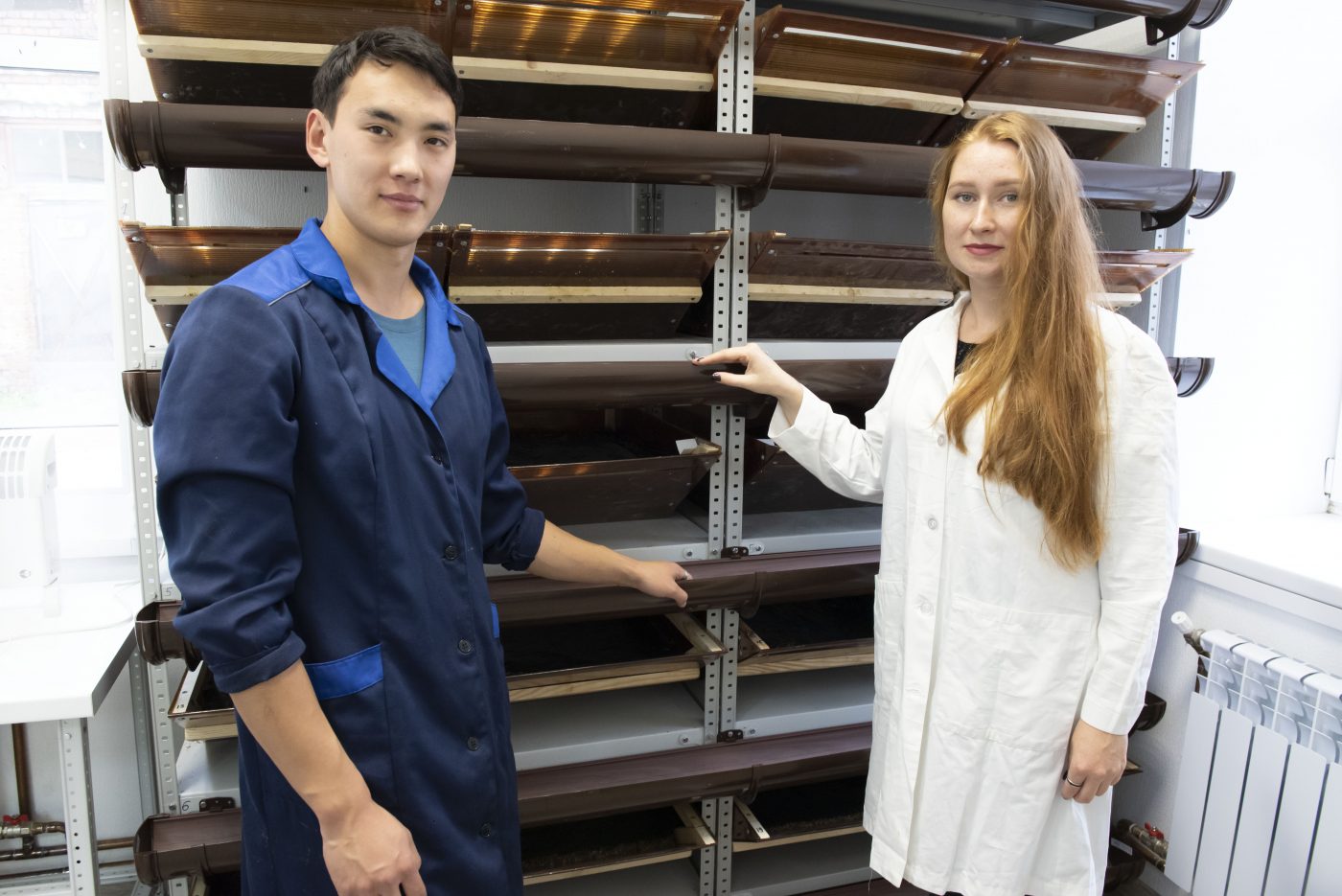Biodestruction of organic waste products at Lake Baikal territory with use of insects

February – December 2021
The trash pollution is one of the most acute ecological problems in Russia and on the Baikal natural territory in particular. Moreover, the planned strategic development of tourism on Lake Baikal leads to an increase in the recreational load and a proportional increase in organic waste on the territory which cannot be properly disposed of so far. This seriously threatens the purest lake with the eutrophication.
A systemic solution to the problem would be the processing of organic waste using the industrial insects: their larvae can eat any kind of organic waste with a high intensity, and by this creating a product – zoohumus, and the larvae themselves become food for poultry and animal husbandry. This technology, at a low cost, has high efficiency and is safe for the environment and humans. However, it will be tested on the Baikal natural territory for the first time.
Lake Baikal Foundation’s project is aimed at solving the problem of recycling organic waste of anthropogenic origin on the model Baikal natural territory using the most effective insects for this.
The research is carried out under the lead of Maxim Dagbayev, the winner of the Baikal Initiative grant competition for young scientists.
Goal:
- to develop the technology for biodestruction of organic waste using industrial decomposing insects (black lion fly and zofobas beetle), as well as to search and identify local native insects suitable for cultivation to be used in the process of biodestruction of organic waste.
Tasks:
- to provide grant support to the Irkutsk State University (ISU) for the project implementation.
- to conduct the following works in 2021 within the grant support:
1) to create an experimental test site at the Baikal Biological Station of the ISU in the Bolshiye Koty settlement and to work out there the technology for decomposing organic waste based on existing industrial insect crops;
2) to select the optimal conditions for the cultivation of insects in local climatic conditions (temperature, humidity of the room and substrate, lighting). This includes establishing the frequency of placing organic waste into the substrate for processing, that is, calculating the rate of biodestruction of organic matter by insect larvae;
3) to organize and conduct an expedition across the Baikal natural territory to search for native insect crops suitable for introduction into the system of organic waste processing, with the involvement of the staff of the Department of Invertebrates, Faculty of Biology and Soil Science, ISU;
4) to identify the most effective cultivation conditions for the found native insects (temperature, humidity of the room and substrate, lighting, nutrient substrate (possibly, a specific type of organic waste));
5) to create the collection of industrial insects from the native inhabitants (possibly, endemic) of the Baikal natural territory and to work out the technologies of their mass cultivation in laboratory conditions and at the test site at the Baikal Biological Station of the ISU.
Results:
- Test system was launched to recycle all kinds of the organic wastes, which are generated by the staff of the research institution, the separated waste collection system was set up in the offices and labs. Special containers for organics were installed. The scientists collected these raw materials, then grinded it and added to the fly’s and zophobas food, which ate the leftovers very fast and recycled it into zoohumus.
- Only in one month of the work of grubs several dozens of kilos of waste were destructed, reducing its volume on the 90%. For each five kilos the researchers get almost 1 kilo of the valuable fertilizer. After six-month experience the dozens of the packs with zoohumus has been gathered. These fertilizers were given to the local farmers, who specialize on producing organic food, for testing.
- The insects themselves were used for receiving biopolymer from their vestiture, chitosan (promising combination, from which the bioplastics and biocompostable packaging can be produced). During the project the participants already received first samplings of mat. They work on improvement of resistance and elasticity of the received biomaterials.
Publications 2022
Иркутские биологи получили биополимер и зоогумус из отходов с помощью насекомых, Общество-политическая газета «Областная», 03.02.2022
Иркутские биологи получили биополимер и зоогумус из отходов с помощью насекомых, Биотех2030, 03.02.2022
Ученые представили итоги проекта по переработке отходов на Байкале с помощью насекомых, Информационное агентство «БМК», 01.02.2022
Publications 2021
На Байкале впервые опробуют переработку органических отходов при помощи насекомых, Общественно-политическая газета «Областная», 23.03.2021
Механизмы самой природы, Интерфакс Сибирь, 13.01.2021
Publications 2020
Иркутский ученый планирует внедрить на Байкале технологию переработки биоотходов насекомыми, Интерфакс, 22.12.2020

